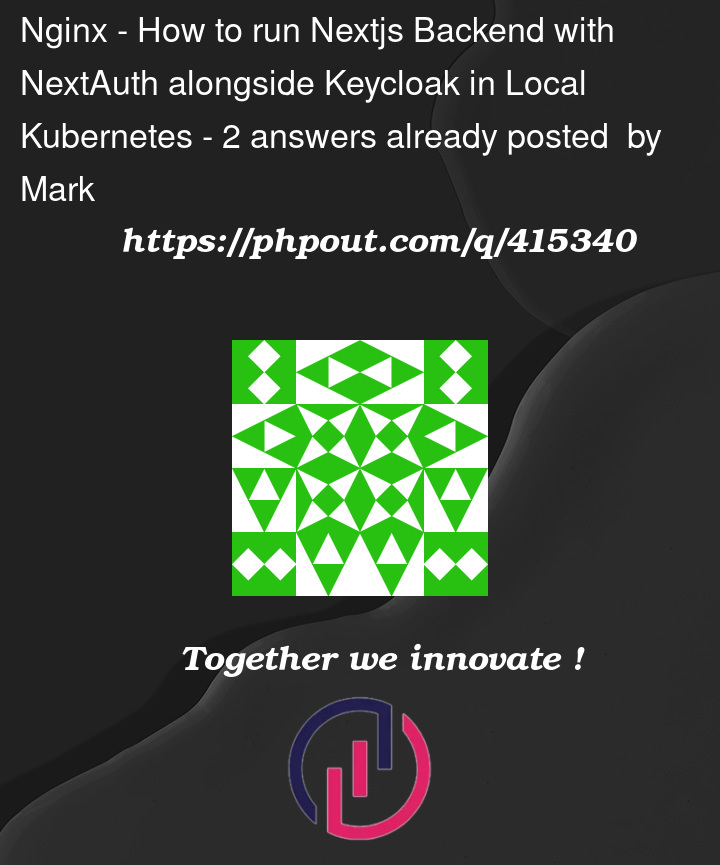I have the following services deployed to a Kubernetes cluster running locally on my machine:
- Keycloak
- NextJS
- Ingress-nginx
The NextJS app is basic: it uses NextAuth and the NextAuth Keycloak provider to allow the user to log in and view a protected page.
I have configured Keycloak with a realm and a web client. This all works fine.
Both services have ingress configurations:
- Keycloak is available via
auth.starter.local - The NextJS app is available via
starter.local
These DNS names are manually configured in my /etc/hosts file to resolve to 127.0.0.1.
When I attempt to log in via the NextJS app (auth.starter.local), I get an error. This is caused because the backend NextJS app is attempting to retrieve the .well-known config from Keycloak at its DNS name, which it cannot resolve inside the Kubernetes cluster.
How do I get this to work? Can I configure Kubernetes coredns somehow to get the domain names to resolve from an inside service?




2
Answers
If you run Keycloak (KC) in Kubernetes (k8s), it is typically exposed through an ingress so that applications outside the cluster can interact with it. For applications inside the cluster, the same configuration is usually required, except when you use network services to avoid an additional hop (e.g., ingress controller) in network traffic.
Keycloak may also be sensitive to the X-Forwarded-Host header, which is used to enable it to work behind proxies (though you can hardcode the hostname FQDN through one of the configuration options). This is useful when configuring different URLs, such as a separate URL for the admin console. Additionally, many companies use split DNS configurations to meet the requirements of the iss claim.
First thing first, the
/etc/hostson your local machine is not shared nor cascaded to the pods/containers inside your Kubernetes clusters. They each has their own/etc/hostsfiles. To add custom entries to each of those/etc/hostsinside the pod/container, you need to use HostAliases.You have to map the
auth.starter.localcustom domain inside the pod/container of your NextJS app to the IP of the service for the Keycloak. Run akubectl describeon the service to obtain its IP.Next, add the
HostAliasessetting to the deployment of your NextJS app (under.spec.template.spec):Repeat in reverse if your Keycloak needs to connect to your NextJS app.